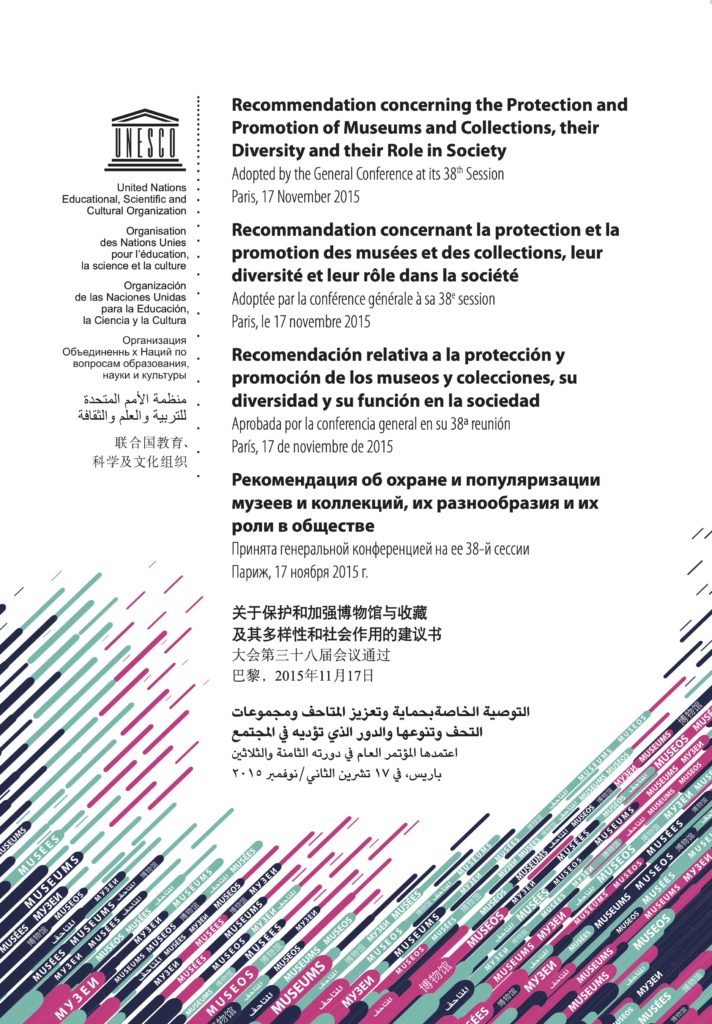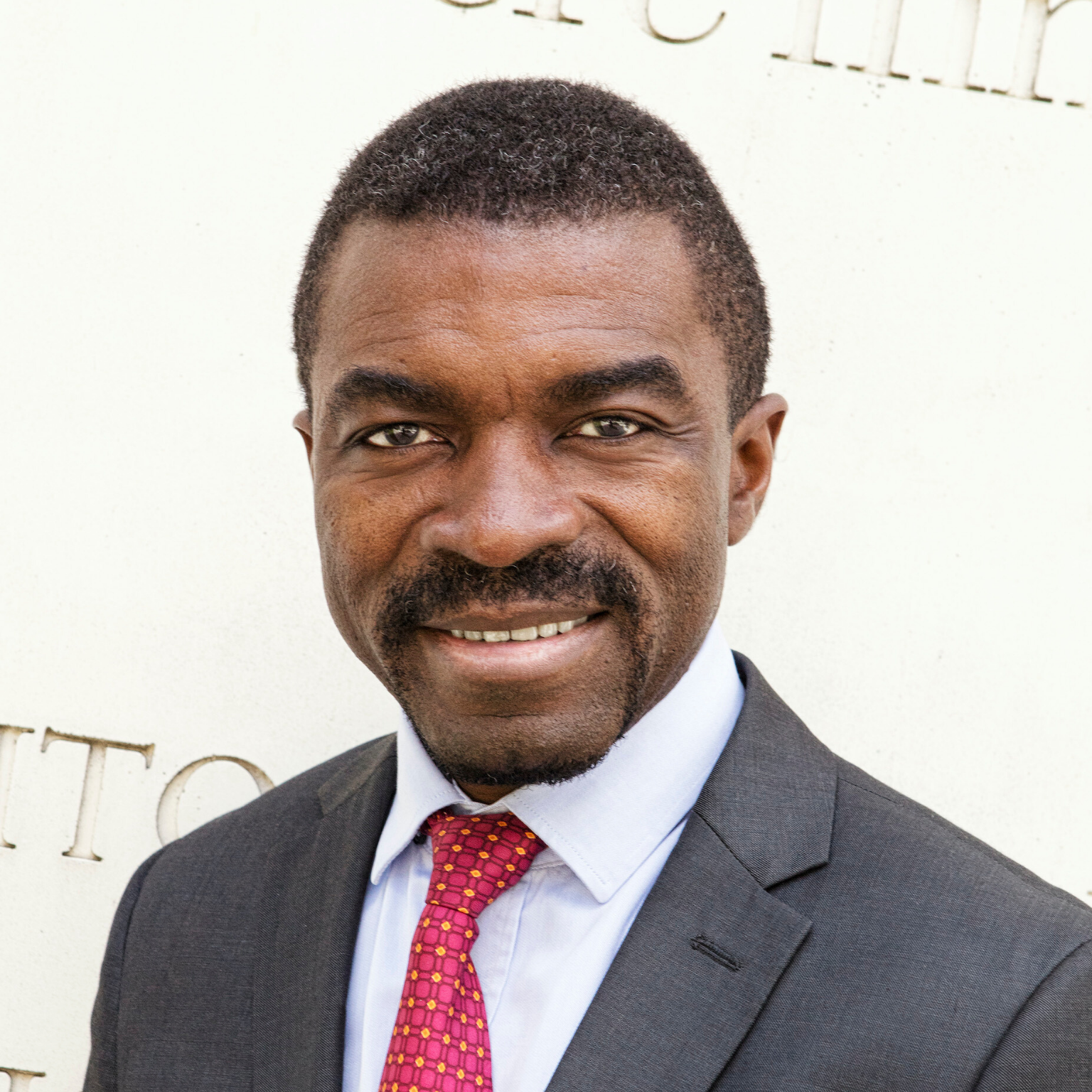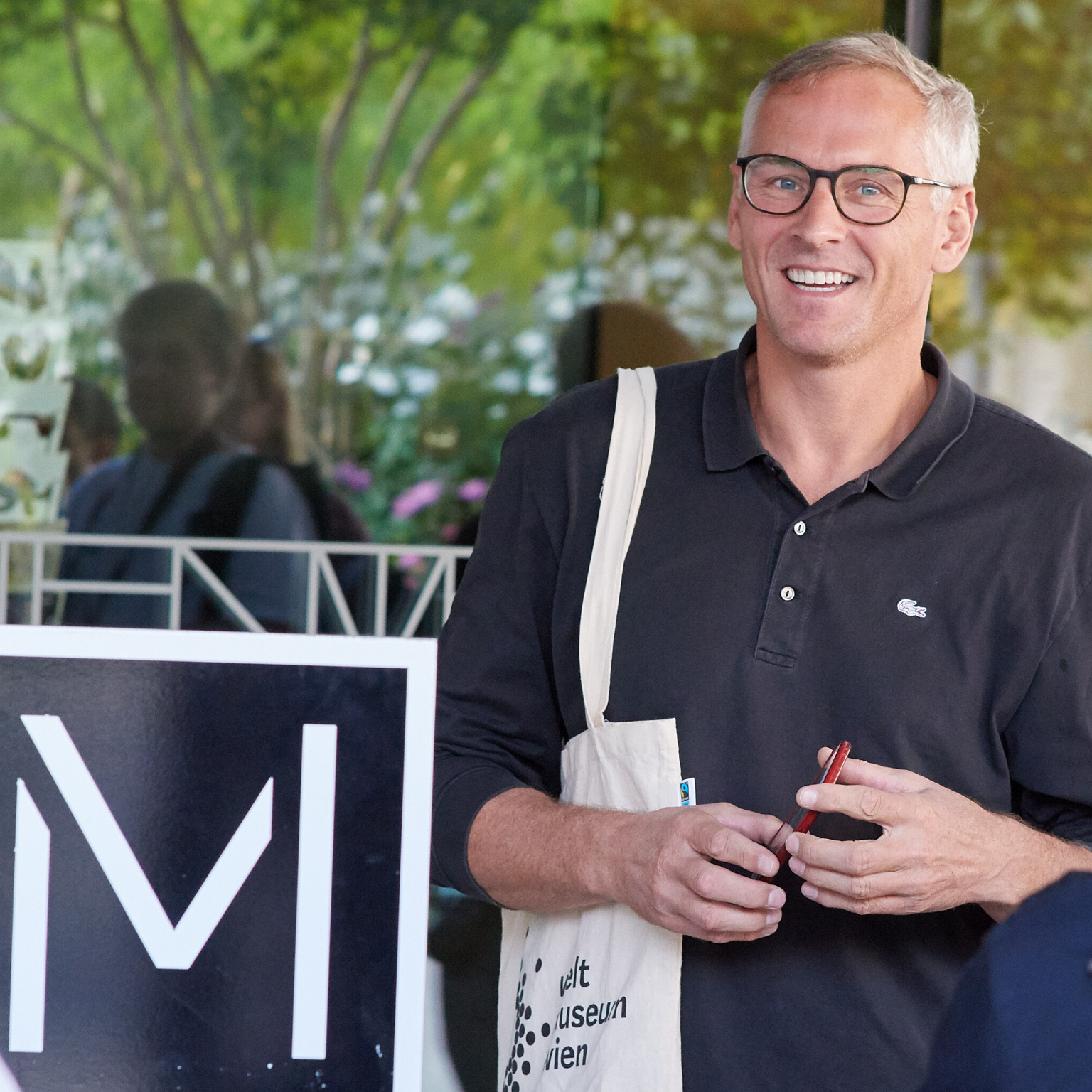1. What is your role at UNESCO?
I am the Director of Culture and Emergencies in the Culture Sector of UNESCO. We support countries in addressing the challenges they face to protect cultural heritage in situations of conflict, disasters, illicit trafficking, and underwater treasure pillaging. In an armed conflict or disaster situation, culture is particularly at risk, owing to its inherent vulnerability and tremendous symbolic and historic value, especially for local communities. UNESCO has a number of international Conventions and Recommendations, which help our Member States address these issues.
In the field of Museums specifically, we work to sensitize countries on the Recommendation on the protection and promotion of Museums and collections.

This Recommendation is particularly important since it stresses the role of museums in social cohesion and development. In 2019, UNESCO published the first report on the implementation of the Recommendation by its Member States, and particularly on how it has enhanced the role of museums in their territory. Our team is also in charge of the organization of the High Level Forum on Museums, which advises the UNESCO Director-General on global issues linked to museums. The first session held in China in 2016, gathered more than 300 world renowned museums and culture professionals.
Let me stress that we have in the recent years been particularly attentive to the situation of museums in emergencies. As examples, UNESCO intervened in 2017 in Timbuktu (Mali) and in 2018 in Mosul (Iraq), to assist governments with putting in place measures to rehabilitate their museums and secure their collections. In September 2018, we advised Brazil’s Government with an emergency expert mission after a devastating fire at the Rio de Janeiro National Museum, and brought assistance to Indonesian museums after the earthquake and tsunami in Palu. Today we are working in partnership with the International Centre for the Study of the Preservation and Restoration of Cultural Property (ICCROM) to assist Croatia after the earthquake that recently struck the country, and affected around 20 museums in the Zagreb city center.
2. Why is MuseumWeek important for UNESCO?
All initiatives that aim to promote the role of museums in our societies and that are also in line with UNESCO’s vision deserve our support and encouragement. This year’s theme “Togetherness” is particularly important in this time of Covid-19, when people need to continue accessing culture in general and museum experiences in particular, and when cultural institutions that are particularly affected deserve support. I would like to recall the importance of museums for UNESCO, not only as places where our common heritage is preserved, but also as key spaces of education, inspiration, dialogue and development. Let me also recall that UNESCO created in 1948 the review MUSEUM International, which today is well managed by the International Council of Museums (ICOM) and is a reference for museum professionals around the world. Moreover in 1960, UNESCO was a pioneer by adopting the Recommendation concerning the most effective Means of Rendering Museums Accessible to Everyone, and which was followed by the 2015 Recommendation. This edition of MuseumWeek is also an opportunity to recall that UNESCO Headquarters in Paris possesses to date the richest artistic heritage of the United Nations. Each May for European Night of Museums, UNESCO opens its doors to welcome thousands of visitors. Due to the pandemic and many closures around the world this year, MuseumWeek and virtual visits are ways for UNESCO and others to involve the global community and to #ShareOurHeritage.
As a global cultural event dedicated to museums on social networks, MuseumWeek represents a very innovative way to promote culture and cultural institutions, especially in this time of sanitary crisis. We therefore encourage during this MuseumWeek the public, and especially youth, and museum professionals, to continue celebrating museums’ role in bringing communities together and making them more resilient, as well as sharing contents, stories, facts and experiences.
3. What is UNESCO’s involvement with cultural institutions in this Covid19 context?
The crisis generated by the COVID-19 has plunged the global economy into a recession. Cultural institutions around the world, including museums, theaters, cinemas, are losing millions in revenues each day and billions of people around the world are deprived from access to culture and cultural institutions. Since the beginning of this unprecedented situation, UNESCO, under the leadership of our Director-General Audrey Azoulay, is mobilized to respond to the pandemic and promote global solidarity through education, science, culture and communication. In the field of Culture, led by UNESCO Assistant Director-General Ernesto Ottone R., UNESCO has launched the global movement – ResiliArt to shed light on the current state of creative industries and cultural institutions like museums amidst crisis through an exclusive global discussion with key industry professionals while capturing experiences and voices of resilience from on social media.
The inaugural debate, held on 15 April 2020, highlighted the difficulties cultural institutions as well as culture professional face, despite their contribution to global economy, and the importance of revalorizing the status of culture and of artists in the post-crisis era. On 15 of May, the first ResiliArt debate dedicated to museums will be organized by Ibermuseums Programme with the support of UNESCO.
The discussion will explore strategies to support museums and their professionals in the Ibero America region to face the challenges that arise from this COVID-19 crisis. It will have participants from 7 countries of this region, with the special participation of UNESCO Assistant Director-General for Culture, Ernesto Ottone R. UNESCO also organized last 22 April, an online meeting of Ministers of Culture in which participated more than 140 Ministers who exchanged their concerns and allowed to better understand the global situation in this particular context. Concerning the impact of the sanitary crisis on museums, UNESCO, thanks to its more than 50 field office-network, is conducting a survey on the impact of COVID-19 on museums around the world and the way museums continue, in spite of their closure, to share culture with billions of confined people. The results of the survey, which we will be combining with the one conducted by ICOM with its network, will be published soon.
We are convinced that MuseumWeek 2020 is particularly important to help spotlight the situation that cultural institutions face and sensitize the international community on the role museum institutions play not only to safeguard, but also to spread culture.
Interview by Benjamin BENITA, MuseumWeek coordinator, Founder and President of Culture For Causes Network



